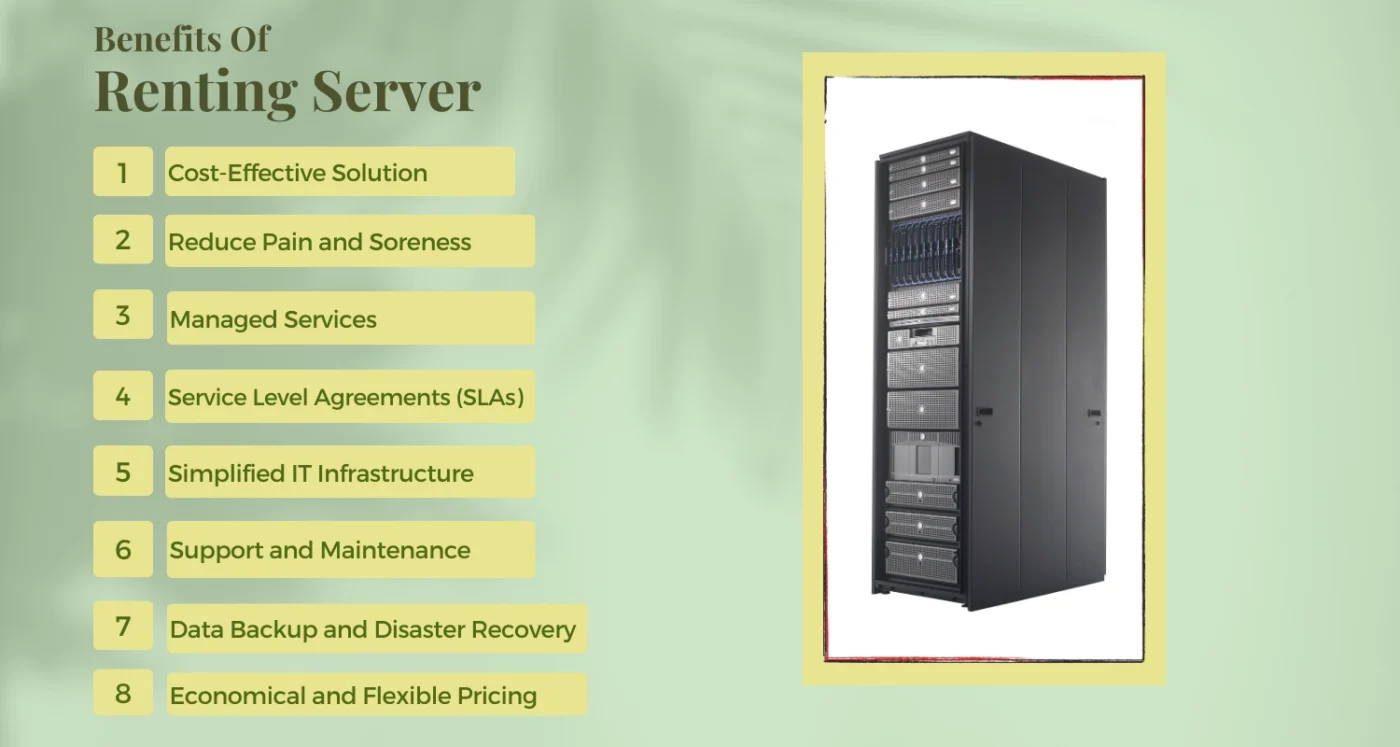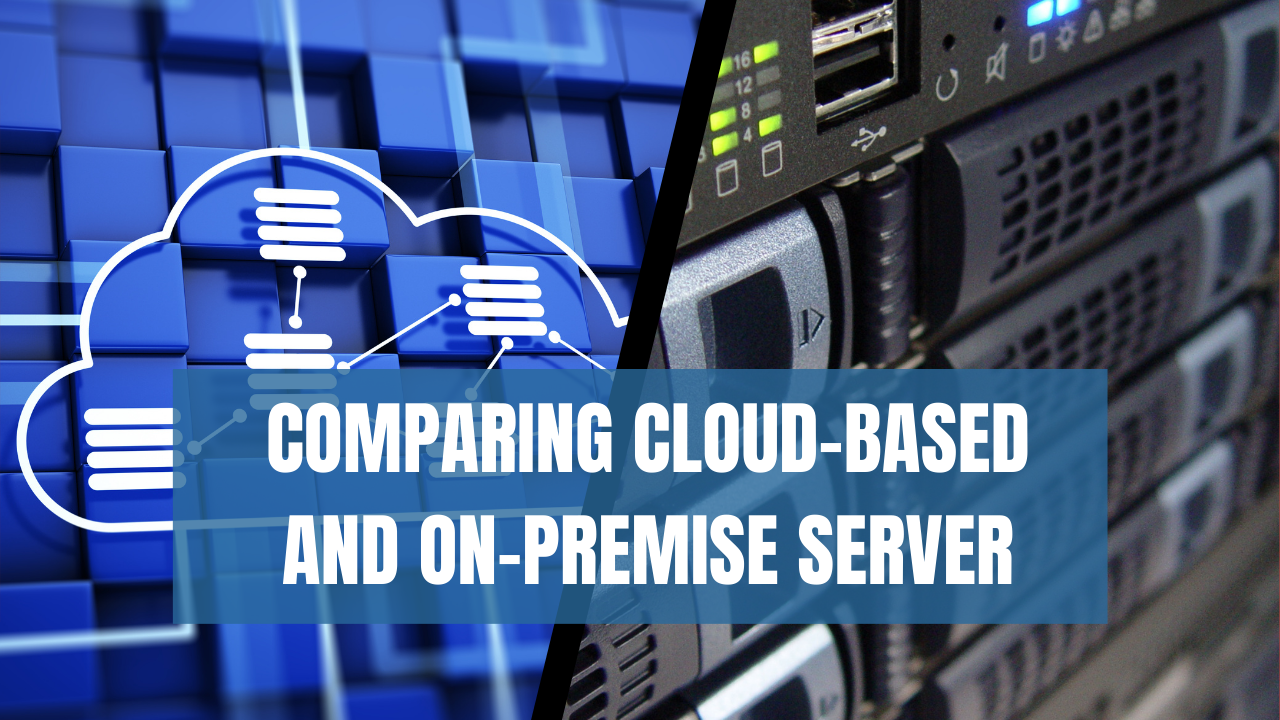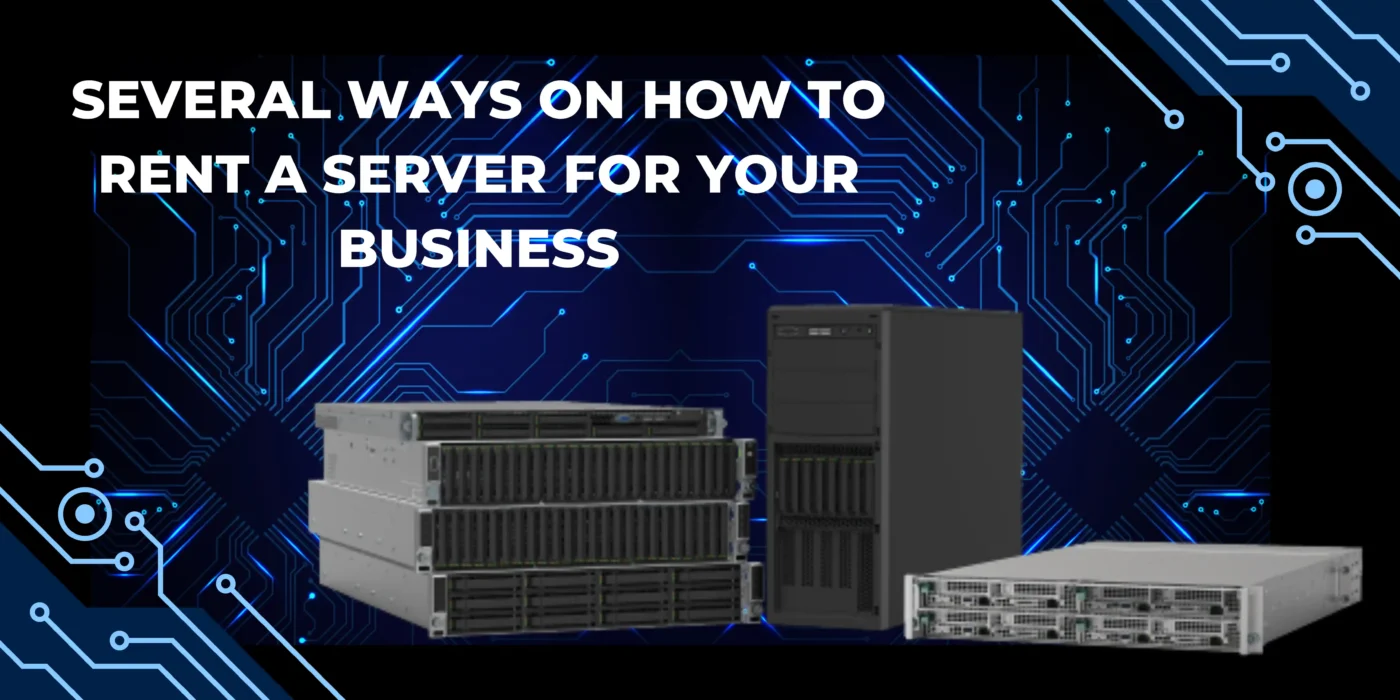In today’s digital age, businesses rely heavily on technology to carry out their day-to-day operations. One of the essential technologies that businesses need is a server. A server is a computer system that provides computing resources and infrastructure to other computers or devices on a network. However, owning and managing a server can be expensive and time-consuming, especially for small businesses or those with limited IT resources. This is where renting a server can be beneficial to an organization.
Understanding Server Rental: What is it and How Does it Work?
Server rental is the process of renting computing resources from a third-party provider instead of owning and managing the servers yourself. This means that businesses can leverage the computing power and infrastructure of a third-party provider to run their applications and store data without the need to invest in expensive hardware and manage the servers themselves.

Benefits of Renting a Server for Your Business:
Renting a server can offer many benefits for businesses of all sizes and industries. Here are some of the key advantages of renting a server for your business:
Cost-Effective Solution: Renting a server eliminates the need for upfront hardware expenses, making it a cost-effective option for businesses. You only pay for the resources and services you require.
Economical and Flexible Pricing: Server rental providers often offer flexible pricing plans, allowing you to choose the resources and services that best meet your business goals. This flexibility can result in significant cost savings compared to managing your own server.
Simplified IT Infrastructure: By opting for server rental, you can avoid the complexity and costs associated with managing your IT infrastructure. This is especially beneficial for small and medium-sized businesses with limited budgets and resources.
Managed Services: Many server rental providers offer managed services, including routine maintenance tasks such as software updates, patch management and backups. This offloads IT responsibilities and lets your team focus on core business activities.
Service Level Agreements (SLAs): It’s important to review the SLAs offered by server rental providers. SLAs define the level of service and support you can expect, including response times for technical issues and guaranteed uptime percentages. Choose a provider with SLAs that align with your business requirements.
Scalability Options: Ensure that the server rental provider can accommodate your business’s growth with easy scalability up or down as your computing needs change over time.
Data Backup and Disaster Recovery: Inquire about the provider’s data backup and disaster recovery solutions, which protect your data from loss and minimize downtime in case of unexpected events.
Support and Maintenance: Assess the level of technical support and maintenance included in your rental agreement. Ensure that the provider offers timely assistance for any server-related issues and that their support team is available when you need them.

Comparing Cloud-Based and On-Premise Server Rental Options:
When considering renting a server, businesses have two main options: cloud-based and on-premise.
Cloud-Based Server Rental: Involves renting virtual servers hosted in the cloud, typically by third-party providers like Amazon Web Services or Microsoft Azure. These virtual servers offer high flexibility and scalability, making them suitable for businesses that require quick adjustments to computing resources.
On-Premise Server Rental: This option involves renting physical servers located on your business premises or in a data center you own or manage. It’s ideal for businesses that need more control over their resources or must store sensitive data on-premise for regulatory compliance.
How to Choose the Right Server Rental Provider for Your Business:
Selecting the right server rental provider is crucial to maximizing your investment. Here are factors to consider when making your choice:
Reliability: Choose a provider with a strong track record of uptime and availability, along with robust backup and disaster recovery services.
Network Redundancy: Inquire about the provider’s network redundancy measures to ensure that your server remains accessible even in the event of network failures.
Customization: Some server rental providers offer the option to customize server configurations to meet your specific needs. This can be particularly valuable if your business requires specialized hardware or software setups.
Exit Strategy: Consider what happens at the end of your rental agreement. Ensure that you have a clear exit strategy for migrating data and applications if you decide to switch providers or bring server management in-house.
Service Reviews and References: Before committing to a server rental provider, seek reviews and references from existing customers to gauge their satisfaction with the service, support and overall experience.
Cost Predictability: In addition to pricing plans, understand the billing structure and how costs may fluctuate based on usage. Predictable billing can help with budgeting and financial planning.
By considering these additional points, you can make a well-informed decision when selecting a server rental provider that best suits your business needs and objectives.
Security Considerations for Rented Servers:
Protecting your data and network security is paramount when renting a server. Consider these security measures:
Two-Factor Authentication: Implement two-factor authentication and strong passwords for all accounts and access points.
Regular Updates: Keep software and applications up-to-date with the latest security patches.
Access Control: Restrict server access to necessary personnel and experts.
Monitoring: Continuously monitor server logs for unusual activity.
Data Encryption: Protect sensitive data both in transit and at rest by using encryption.
Pick a Reputable Hosting Company: Select a hosting company with a solid reputation and a history of using security measures.
By taking these security precautions, you can ensure the safety and reliability of your rented server.
Conclusion:
A trusted provider of server rental services, offers cost-effective and flexible computing resources, freeing your business from the burdens of managing IT infrastructure. This is where Zaco Computers comes into the picture. When choosing Zaco as your server rental provider, you benefit from reliability, scalability, technical expertise and much more. By implementing robust security measures, you can safeguard your rented servers, protecting your data and ensuring the continuity of your business operations. Zaco is your strategic partner for efficient and reliable server rental services, tailored to your business needs and objectives.
